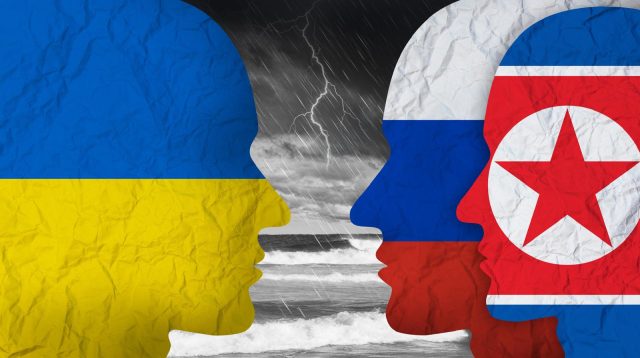
The deployment of North Korean troops in the Ukrainian conflict has been one of the most unexpected developments of the war. However, the combat experience of Kim Jong-un’s soldiers already appears to have come to an end, with a forced withdrawal due to heavy battlefield losses.
December 2024: The Debut of North Korean Troops
At the end of 2024, around 11,000 North Korean soldiers were deployed in Russia to support Moscow’s forces in the war against Kyiv. According to South Korean sources, these soldiers belonged to the Storm Corps, an elite unit of North Korea known for its iron discipline and heavy ideological indoctrination.
Initially, Russian sources described the North Korean intervention as crucial for the capture of a village in Russia’s Kursk region. However, independent assessments quickly contradicted this narrative. Ukrainian President Volodymyr Zelensky and South Korean intelligence agencies reported that losses among North Korean ranks were already extremely high. By late December, estimates indicated that over 1,100 soldiers from Pyongyang had been killed or wounded in combat.
January 2025: Heavy Losses and Withdrawal
With the start of the new year, North Korean casualties became even more severe. Zelensky reported that the number of dead and wounded among Kim’s troops had surpassed 3,000. The New York Times, citing South Korea’s National Intelligence Service, highlighted how these soldiers were unprepared for the technologically advanced warfare in Ukraine, characterized by extensive use of drones and trench warfare.
Although North Korean troops were trained for guerrilla operations, infiltration, and urban combat, they had never faced a large-scale war scenario, especially not in such a distant and hostile territory as Europe. The lack of coordination with Russian forces and the absence of an effective logistical chain made their position even more vulnerable.
In response to these difficulties, by the end of January, Ukrainian and U.S. officials confirmed that North Korean troops had been withdrawn from the front lines. For about two weeks, there had been no reports of their presence in combat. Ukrainian General Oleksandr Syrsky stated that the North Korean contingent had been reduced by at least half compared to the initial 11,000 soldiers deployed. Some reports suggest that Russian commanders were dissatisfied with their performance and logistical struggles, leading to their eventual removal from the battlefield.
What Are the Consequences?
Pyongyang’s decision to send troops to Russia is driven by both political and strategic motives. With this intervention, Kim Jong-un aimed to strengthen ties with Moscow, hoping to secure assistance in his missile programs and greater diplomatic support in international forums. However, the high number of casualties could be a significant blow to the North Korean regime, both in terms of military credibility and internal support.
Despite the withdrawal from the front lines, it is not ruled out that North Korea may send new contingents or provide additional military equipment to Russia. The war in Ukraine remains an opportunity for Kim to demonstrate loyalty to Putin and gain influence on the international stage. Reports suggest that North Korea has already supplied Russia with large quantities of artillery shells and missiles, further deepening their military cooperation.
Additionally, intelligence assessments indicate that Pyongyang may seek economic incentives from Moscow in exchange for its support, such as food aid and energy resources to mitigate the severe economic conditions within North Korea. These incentives could motivate further military collaboration despite the heavy losses suffered on the battlefield.
Thus, while the North Korean episode in the Ukrainian conflict appears temporarily closed, future developments cannot be ruled out. The Pyongyang regime and his President have every interest in maintaining its involvement, seeking strategic and political advantages that could offset the heavy losses suffered on the battlefield.



 Subscribe
Subscribe